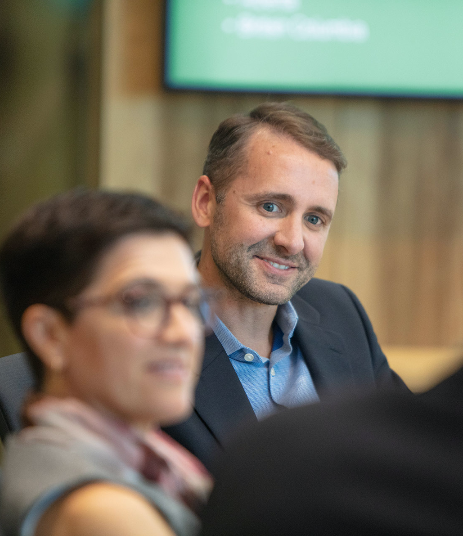Togo Becomes First Country in Africa to Validate the Elimination of Lymphatic Filariasis as a Public Health Problem
April 18, 2017 7:00 am ET
LOME, TOGO — GSK, Merck (known as MSD outside the United States and Canada), and the MECTIZAN® Donation Program (MDP) congratulate President Faure Gnassingbé, the government and the people of Togo for becoming the first country in Africa recognized by the World Health Organization to have eliminated lymphatic filariasis (LF) as a public health problem.
LF, commonly known as elephantiasis, is a debilitating disease caused by a parasite transmitted to humans through the bites of mosquitoes. According to the World Health Organization (WHO), LF is found in 73 countries with an estimated 120 million people infected. Long-term, chronic infection may cause damage to the lymphatic system of people affected, and limbs, breasts, and genitals can become severely and irreversibly swollen, causing extreme discomfort and social stigmatization.
In African countries where LF and another parasitic disease called river blindness are co-endemic, the WHO recommends co-administering two medicines, albendazole and ivermectin, annually for at least six years to reduce the level of parasites in infected people and help break the cycle of transmission until the disease is no longer a public health problem.
A WHO resolution to achieve the elimination of LF was established by the Fiftieth World Health Assembly in Geneva in 1997. In 1998, GSK announced the donation of albendazole for the elimination of LF, and Merck expanded its donation of MECTIZAN® (ivermectin) through the MDP to include the elimination of LF in countries where the disease co-exists with river blindness. Since 1999, GSK has donated over 7 billion doses of albendazole worldwide to fight LF. Since 1987, Merck has donated more than 2.5 billion doses of MECTIZAN® to control and eliminate river blindness and LF.
The elimination of LF in Togo follows similar progress in seven countries (Cambodia, Cook Islands, Maldives, Marshall Islands, Niue, Sri Lanka and Vanuatu) validated by the WHO to have eliminated LF as a public health problem. Thirteen additional countries have successfully completed large-scale treatment programs and are under surveillance to demonstrate that elimination has been achieved. This remarkable progress has been supported by a public-private partnership, the Global Alliance for the Elimination of Lymphatic Filariasis (GAELF), which brings together academic and research institutions, endemic counties, non-governmental development organizations, financial donors and the private sector in the fight against LF.
“We celebrate this important achievement with the people of Togo. Lymphatic filariasis is a debilitating, but preventable, disease that not only affects patients and their families but also communities and health care systems,” said Dr. Julie L. Gerberding, Merck’s chief patient officer. “Working with our partners for nearly two decades, we strive to eliminate LF in Africa and Yemen to help improve the lives of tens of millions of people.”
Phil Thomson, president of Global Affairs, GSK said “Achieving elimination of LF is a fantastic achievement for Togo and is testament to the commitment of the Togolese Government and the dedication of the health workers delivering treatments on the front line. We are committed to playing our part with the donation of albendazole for as long as it is needed to replicate this success throughout endemic countries, freeing communities from the burden of LF.”
The MDP’s director, Dr. Yao Sodahlon, is a Togolese national and expert in tropical diseases who worked closely over the years with the ministry of health and other partners to ensure Togo’s success. “I am very proud of my country for achieving elimination of LF. My colleagues in the ministry of health must be congratulated for their dedication to ensuring the medications were consistently delivered to the millions of people at-risk of infection every year since the national elimination program started in 2000. I hope other countries in Africa will soon follow Togo in achieving this goal,” he said.
About GSK
GSK – one of the world’s leading research-based pharmaceutical and health care companies – is committed to improving the quality of human life by enabling people to do more, feel better and live longer. For further information please visit www.gsk.com.
Contact: Catherine Hartley
+44 (0) 20 8047 5502
About Merck
For more than a century, Merck, a leading global biopharmaceutical company known as MSD outside of the United States and Canada, has been inventing for life, bringing forward medicines and vaccines for many of the world’s most challenging diseases. Through our prescription medicines, vaccines, biologic therapies and animal health products, we work with customers and operate in more than 140 countries to deliver innovative health solutions. We also demonstrate our commitment to increasing access to health care through far-reaching policies, programs and partnerships. Today, Merck continues to be at the forefront of research to advance the prevention and treatment of diseases that threaten people and communities around the world – including cancer, cardio-metabolic diseases, emerging animal diseases, Alzheimer’s disease and infectious diseases including HIV and Ebola. For more information, visit www.merck.com and connect with us on Twitter, Facebook, YouTube and LinkedIn.
Contacts:
Jeanine Clemente Claire Gillespie
908-236-5059 267-305-0932
About the MECTIZAN® Donation Program
The MECTIZAN® Donation Program (MDP) was established in 1987 to provide medical, technical and administrative oversight of the donation of MECTIZAN® by Merck for the treatment of onchocerciasis. In 1998, MDP expanded its mandate to include oversight of the donation of albendazole by GSK for the elimination of lymphatic filariasis in onchocerciasis co-endemic areas.
Contacts: Joni Lawrence Yao Sodahlon jlawrence@taskforce.org ysodahlon@taskforce.org
404-687-5610 404-371-1460
CONTACTS
GSK
Catherine Hartley
+44 (0) 20 8047 5502
Merck
Jeanine Clemente
908-236-5059
or
Claire Gillespie
267-305-0932
Mectizan Donation Program
Joni Lawrence
404-687-5610
or
Yao Sodahlon
404-371-1460



